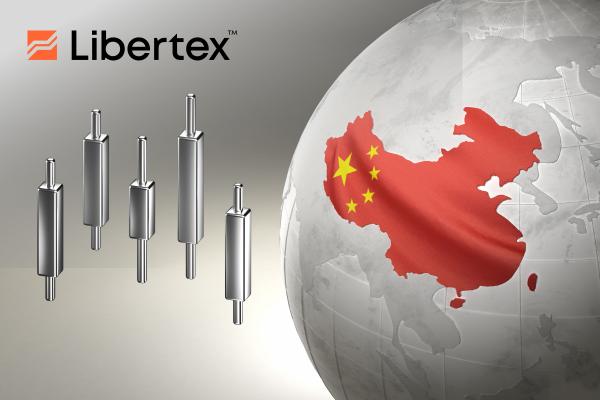Stocks are making both headlines and fortunes once again. But this time, the growth isn't just limited to the US and Europe; long-suffering Chinese stocks are at the forefront of the new wave of bullish sentiment. This renewed speculative fever across both Mainland and Hong Kong tickers comes after the Chinese Communist Party (CCP) pledged a series of economic stimulus packages in September to help the domestic economy. The news saw major tech stocks like Alibaba, Tencent and Baidu soar to two-year highs.
However, the lack of a major centrepiece to the spending packet coupled with the election of Donald Trump — a famous China hawk — drove a fairly sharp correction as many Hong Kong traders decided to take profits instead of waiting for a full recovery. The insulated Mainland indices have managed to hold on to many of their gains, though, with the China A50 still around 30% higher than its September level at 13,450 as of 21 November.
But with potential tariffs incoming and strong anti-China rhetoric from many new Trump appointees, many are wondering whether the recovery could eventually run out of steam. Meanwhile, domestic factors, such as the returning appetite for risk assets like stocks, will surely have a part to play. In this piece, we'll explore what might be ahead for Chinese equities under Trump while also looking at how the CCP might seek to mitigate the effects of changing relations.
What's the worst that could happen?
Ever since Trump announced his latest campaign, we've been hearing increasingly antagonistic rhetoric on China and multiple calls for the imposition of everything from 40% to 60% import tariffs to bans on the sale of next-generation computer chips and semiconductors. As a result, GDP growth predictions for the world's second-biggest economy have been sliced by as much as a whole percentage point. However, as is always the case with Trump, we've yet to see how much of this was hyperbolic posturing ahead of the election or if it was one of his classic negotiation tactics.
Despite these risks leading some to call China "uninvestible", there are plenty of major hedge fund managers who are more than happy to take a punt on the Asian powerhouse. Co-chairman and co-founder of Oaktree Capital Management Howard Marks, for instance, is actively "looking for bargains on the onshore market" and called the fearful commentary around China "music to [his] ears". After all, Chinese stocks never experienced a post-pandemic rebound, and so many valuations of companies with huge potential are unprecedentedly low. For example, the average P/E ratio of China's big tech sector is below 20, while a raft of industrial giants are trading below their book value. Indeed, the fear and greed indicator is very much still indicating undue fear in Chinese equities, which would historically make them good value for money.
Your wish is my command
We would be wise to remember that the Chinese stock market doesn't generally behave in the same way as the S&P 500 or Nasdaq. China is a one-party state with a command economy, so the power of the authorities to regulate markets is, for better or for worse, much greater than in the West. And unlike the Hang Seng, domestic stocks are largely insulated from the large price swings that can be provoked by the involvement of international capital. It is also expected that the CCP will seek to neutralise the impact of tariffs through aggressive fiscal policy. In fact, Bank of America analysts eye potential bond issuance and increased fiscal deficit strategies from Beijing in a bid to support economic stability. This would also have the added advantage of buoying both real estate and the value of domestic companies.
As we have already touched upon, the Chinese government has already prepared a $1.4 trillion stimulus package to help put the country back on the road to 5+% GDP growth. However, it has thus far refrained from offering direct stimulus in favour of 'hidden' debt swaps. It's highly likely that Beijing is holding back a few even more radical measures in case of a full-blown trade war with the US. It's also worth noting, at least for Hong Kong listings, that much of the 'worst-case scenario', bar an invasion of Taiwan, has already been priced in post-election. Thus, any further announcement of additional stimulus will likely provide strong positive momentum for all China-related stocks.
Trade CFDs on Chinese stocks with Libertex
Libertex offers both long and short positions on CFDs in a range of asset classes, from crypto and forex to stocks and ETFs. Libertex offers CFDs on China-focused indices like the China A50 Index (XU) and the Hang Seng Index (HIS), as well as on a variety of individual tickers, including Alibaba, Tencent, and Baidu. For more information and to make an account of your own, visit www.libertex.com/signup


